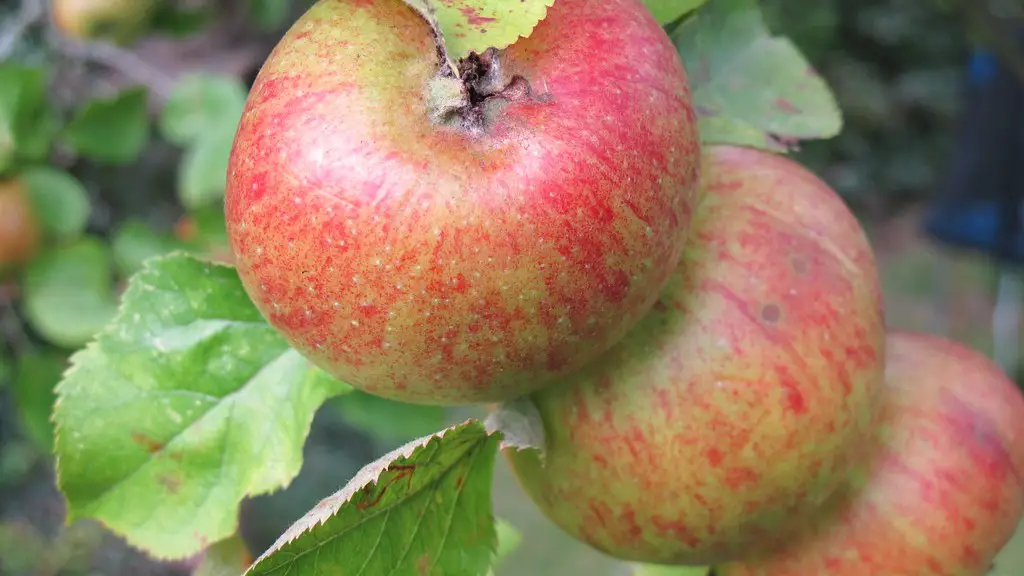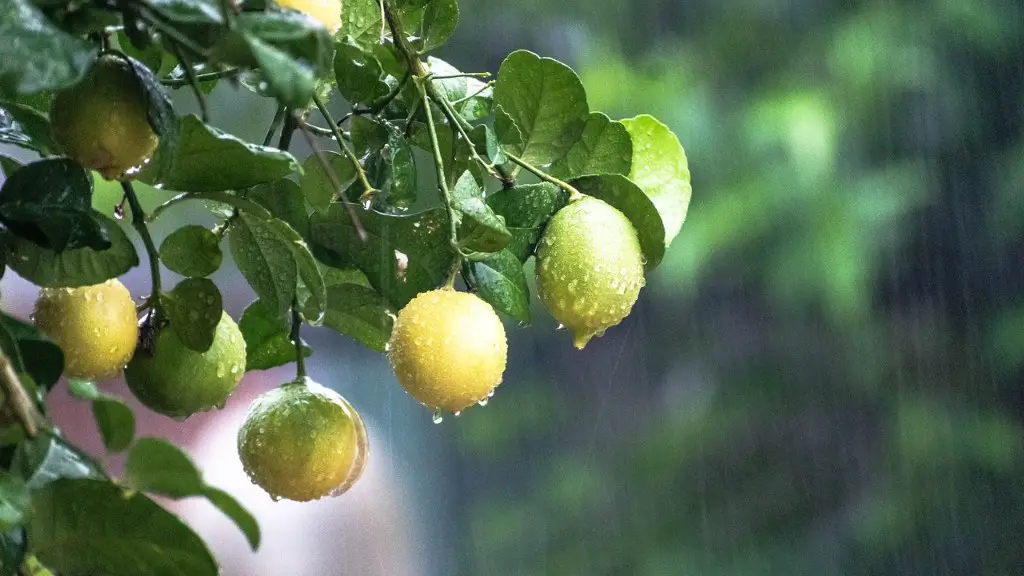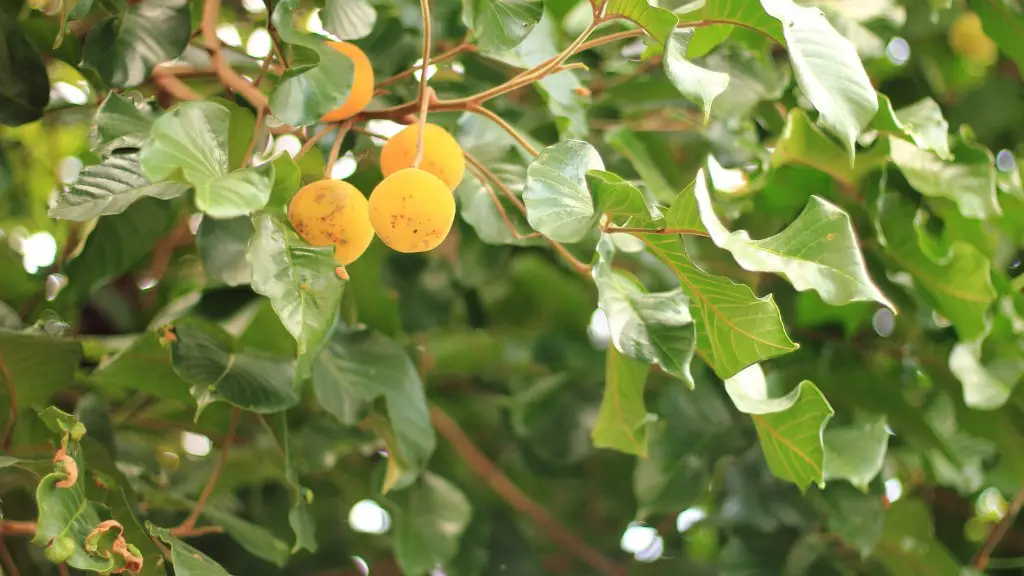What is an Avocado Tree?
An avocado tree is a type of tropical evergreen tree with a characteristic drooping habit and large, evergreen leaves. It produces a fragrant white flower and a round, green fruit which is the avocado. Avocado trees are native to the Caribbean, Mexico and Central America and they have become popular in other parts of the world due to their culinary and nutritional value. The trees need certain environmental conditions in order to produce fruit, but not all avocado trees will produce fruit under the same conditions.
Fertilizer and Soil
Fertilizer and soil are important factors which determine whether an avocado tree will bear fruit. While the specific type of fertilizer may vary, it is important to use fertilizer which is specifically designed for fruit trees. The fertilizer should be applied regularly in order to provide the tree with the necessary nutrients. The soil should also be adequate for fruit production, and the pH should remain between 5.5 and 7.5 for optimal fruit production.
Environmental Factors
Environmental factors such as temperature and sunlight will also have an effect on whether an avocado tree bears fruit. Avocado trees require at least 12-15 hours of sunlight every day in order to flower and produce fruit. The ideal temperature range for avocado trees is between 60°F and 90°F (15°C – 32°C). The tree should also be protected from winds and rainy weather, as too much rainfall can lead to fungal diseases and waterlogged soil.
Pruning
Pruning is another factor which can affect the fruiting of an avocado tree. Pruning should be done carefully in order to encourage the growth of new shoots and to prevent the tree from becoming overcrowded. Removing dead or diseased branches can also help to promote the growth of healthy shoots which will flower and produce fruit.
Pests
Pests and diseases can also be a factor when it comes to fruit production in avocado trees. Common pests which can affect avocado trees include mites, aphids, scale insects and mealybugs. The presence of these pests can often be controlled through the use of insecticide or fungicides, or by improving the air flow around the tree and avoiding excessive humidity.
Pollination
Pollination is essential in avocado trees in order to produce fruit. Avocado trees are self-fertile, meaning that pollination can occur when pollen is transferred within the same tree. However, in order to promote cross pollination between different avocado trees, it is advisable to plant more than one avocado tree to ensure there are compatible varieties.
Watering
Watering is another essential factor which can determine whether an avocado tree produces fruit or not. Avocado trees need regular irrigation in order to maintain healthy growth and development. The amount and frequency of watering will depend on the particular climate and environmental conditions, but the soil should be kept moist at all times. Overwatering can lead to root rot and other problems, so it is important to be careful not to overwater the tree.
Mycorrhizal Fungi
Mycorrhizal fungi are beneficial fungi which act as natural fertilizers and help to promote the growth of avocado trees. These fungi form a symbiotic relationship with the roots of the tree and help to promote nutrient uptake and water infiltration. In order to increase the levels of mycorrhizal fungi in the soil, it is important to use organic matter or compost and to avoid using chemical fertilizers.
Grafting
Grafting is a process which is used to fertilize the tree and increase the production of fruit. Grafting is a technique which involves cutting a section of a mature tree and joining it to a young rootstock. This process can improve the production of flowers and fruit and can make it easier for the tree to adapt to different environmental conditions.
Seed Quality
The quality of the seed is important in determining whether an avocado tree will bear fruit or not. If the seed is not viable or of poor quality, then it is unlikely that fruit will be produced. The seed should be checked for size, shape and colour before it is planted, and it should be planted in soil which is of good quality.
Time
Time is also an important factor when it comes to producing fruit in avocado trees. It can take up to three years for an avocado tree to produce fruit, and even then it may not produce a large amount of fruit. Patience is important when it comes to growing avocado trees, and it may take a few years for the tree to reach its full potential.
Bee Pollination
Bee pollination is essential for the production of fruit in avocado trees. Bees help to pollinate the flowers on the tree, which will then result in the production of fruit. It is important to ensure that there are plenty of bees in the area in order to promote successful pollination.
Parasitic Plants
Parasitic plants which attach themselves to the root system of an avocado tree can prevent the tree from producing fruit. These plants will steal water and nutrients from the tree, which can lead to stunted growth and decreased flower and fruit production. It is important to inspect the tree regularly for signs of parasite infestation in order to keep the tree healthy and productive.
Nutritional Deficiencies
Nutritional deficiencies can also be a factor when it comes to avocado tree fruit production. The tree may not be getting the necessary vitamins and minerals which it needs in order to produce a good yield of fruit. Ensuring that the soil is adequately fertilized and providing the tree with a balanced diet can help to prevent nutritional deficiencies.
Pest Control
Pest control is an important factor in producing fruit in avocado trees. Common pests which can affect avocado trees include mites, scale insects, mealybugs and aphids. In order to prevent damage to the tree, it is important to use insecticides and fungicides which are specifically designed for use on fruit trees. Regular inspection of the tree and surrounding area will also help to identify and control any pests which are present.
Correct Planting
Correct planting of an avocado tree is essential if it is to produce fruit. The tree should be planted in the correct soil and in an area which receives plenty of sunlight. Placement of the tree can also have an effect on the production of fruit, as avocado trees do not thrive in areas which are too shady or too windy.
Growth Phases
Avocados trees have a number of growth phases which need to be considered in order for them to produce fruit. The young trees will require plenty of sunlight, water, fertilizer and pruning in order to develop properly. The trees will also need to reach maturity before they are able to produce fruit, and this can take several years.
Pollinators
Pollinators are an important factor in the production of fruit in avocado trees. Bees, hummingbirds and other pollinators need to be present in order for the flowers on the tree to be pollinated and for fruit to be produced. It is important to ensure that the area around the tree is attractive to pollinators in order to promote successful pollination.



